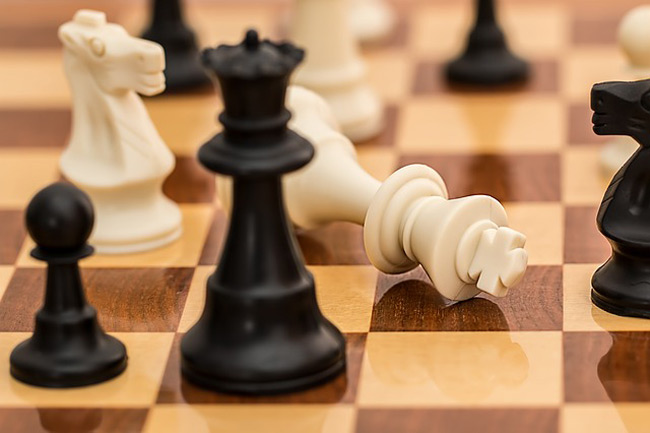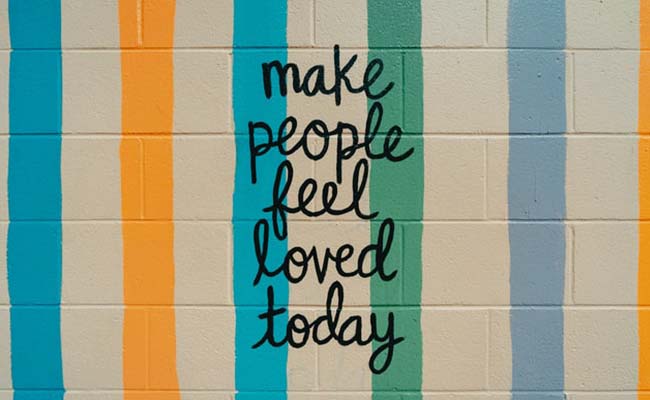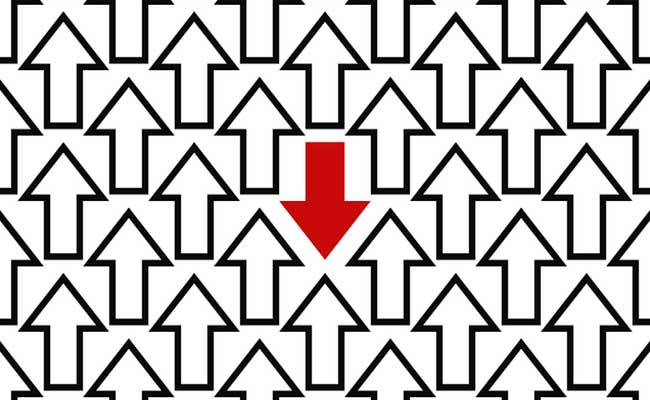The law of cause and effect is a very simple principle:
For every effect in your life there is a specific cause. Sometimes it is referred to as the ‘iron law of the universe'.
The premise is that everything happens for a reason, that there are no accidents, that we live in an orderly universe that is governed by law; but not laws as we tend to think of them but rather natural laws.
I don't buy into the notion that everything that happens in your life is because of something you did right or wrong, because clearly sometimes things are out of your control.
For example: if someone mounts the pavement and runs me over, one could argue that the cause was me happening to be in that place at that specific time, and what caused the driver to mount the pavement was drinking and driving.
But I had no prior knowledge that this would occur, so how would I have avoided it?
Others might argue that a bad conscious decision led me to be in that place at that time, perhaps a decision that happened much earlier in the day.
In that sense, the law of cause and effect is too simplistic. Yet, everything does have a cause. That is true.

Life is like a game of chess. Every move is a choice, that choice is the cause, that cause has an effect.
My Experience of Cause and Effect
What I can talk about from experience is that I know with absolute certainty that negativity breeds negativity. In the same way violence breeds violence.
I know that positive thinking and taking the appropriate positive action to complement that thinking is more likely to lead you to a positive place than negative actions and negative thinking.
This in part ties into the law of attraction, which we'll save for another time, but it is absolutely true.
If we continue to do the same things over and over again, we will get the same results.
The definition of insanity is doing the same thing over and over again, but expecting different results. – Albert Einstein
If we break our lives down and look back over our experiences is quite easy to identify that there are specific causes of success and specific causes of failure. This is true for health and fitness, and for happiness and unhappiness.
For example: I'm quite fit the moment because I have been running weekly for a couple of years now. But if I stop my training immediately and don't run for six months, I will not be as fit and healthy. That is a fact.
If I look back on the relationships I've had in my life, I can identify at least three toxic relationships and the reasons why they caused me so much unhappiness.
So if I was to seek an intimate relationship in the present day, I would know the type of person to avoid and the signs to look for in a person that might potentially lead me down that same path.
There was a cause of those toxic relationships – my choice, and an effect – the toxicity.
The same can be said for work.
There are specific things that I can identify that have led me to reach more of my potential. Many of these things are simple organization skills I learned from other successful people. Not rocket science, just common sense.
There are specific areas of work which I don't enjoy doing, and I know if I do too much of them it starts to infringe on my general happiness.
In a nutshell, life experience should teach us to make better choices; we begin to understand this law of cause and effect and make appropriate change.
I discovered, from the analysis of over 25,000 people, that men who succeed in an outstanding way, seldom do so before the age of forty, and more often they do not strike their real pace until they are well beyond the age of fifty. – Napoleon Hill, Think Rich Grow Rich
How Mindfulness is Useful in Identifying the Law of Cause & Effect
This is where I think mindfulness is really useful.
Because it helps you cultivate an awareness of your choices by seeing your thoughts, feelings and emotional state of mind for what it really is, and how it is controlling your life and causing you to act on impulse and autopilot.
Once you begin to view the mind objectively in that way, you are able to take better control of your life and in turn make better choices.
Your thoughts are the primary causes of the conditions of your life.
Everything in our experience begins with a thought of some kind, be that yours or someone else's.
We can't filter thoughts and stop certain thoughts from happening, but we can certainly learn to identify the thoughts that are helpful and conducive to happiness and those that will only lead to further negativity.
And this is intrinsically tied to the law of cause and effect: because in the same way we can identify times in life when we were on a negative trajectory, we can also identify the actions we were taking and the mindset we were in when we were being successful.
And by successful I don't just mean making good money or achieving goals but rather when we fell at ease, content and at peace with those in our lives – friends and family.
Whatsoever a man so, that also shall he reap. ~ Galatians 6:7-9 KJV
It isn't just actions we can apply this thinking to but thoughts too.
This is where I find this principle of cause and effect very useful. I can clearly identify when I am in a frame of mind that is likely to lead to negative outcomes.
How I process a situation determines not just how that situation will turn out or the likely chain of events that will follow, but how I will interact with my family and friends, how much energy I will have for my work, how motivated I will be to read and do my piano practice, etc.
Everything in my life is affected by the way I deal with my thoughts and the subsequent emotions and feelings.
This is the law of cause and effect.
Again, your thoughts are the primary causes of the conditions of your life. Of course, as described at the beginning of this post, there are going to be things outside of our control, or at least seemingly, but if we are honest on a day-to-day basis, this principle rings true.
We generally get out of life what we put in, and you generally you reap what you sow.
If you work hard you will be more successful than unsuccessful. If you treat people the way that you want to be treated, you are more likely to be treated better by others.
It is better to light one weak candle than to curse the darkness – Scottish proverb
If you enable and facilitate the darkness, then you will remain there. If you choose to let the light in then the sun will continue to rise.
In Summary
Whether you fully buy into the law of cause and effect or not, it is impossible to deny that the more negative thoughts you allow to invade your space and control your feelings, and the more negative actions you engage in, and the more negative people you allow to be in your life and influence you, the more likely you are to be unhappy and not fulfill your potential.
And again, I must reiterate, that when I talk about fulfilling your potential and “success”, I am not necessarily talking about money and material gain. I am talking about living a life that matters to you.
I'm talking about doing things that you enjoy, being around people that bring you joy, feeling motivated to get up in the morning and engage in your daily routine – no matter how seemingly small and irrelevant the task that lay ahead of.
The easiest thing in life is to make excuses, to blame everyone else, to blame life itself. One of the hardest things to do is to look in the mirror and take full responsibility.
When we look in the mirror it becomes easy to see that there are things that we continue to do that cause us to remain in a cycle of unhappiness and frustration and unease.
And actually, on reflection, there are some very simple things we can do to alleviate some of this unhappiness, stress and anxiety, even if just little by little.
Some people argue against this and say “but I always try to think positively and do good things but I only ever have bad luck or negative people in my life”.
But on analysis, the truth is that we often allow these negative people to be in our lives.
We make choices that enable these people to be around us.
We say we try to think positively but actually we invest way too much time in talking about the negative things that have happened to us and how unlucky and unfortunate we are.
When something doesn't go our way, instead of investing time in analyzing the choices that we've made and what we could have done better, and what positives we can take from the situation and what actions we can take in this moment to make the next moment a better one, we feed the emotions of feeling sorry for ourselves, telling everyone we encounter of our misfortune and readily accepting their sympathy.
Something to think about.





Theresa says
Thank you. This is very helpful.